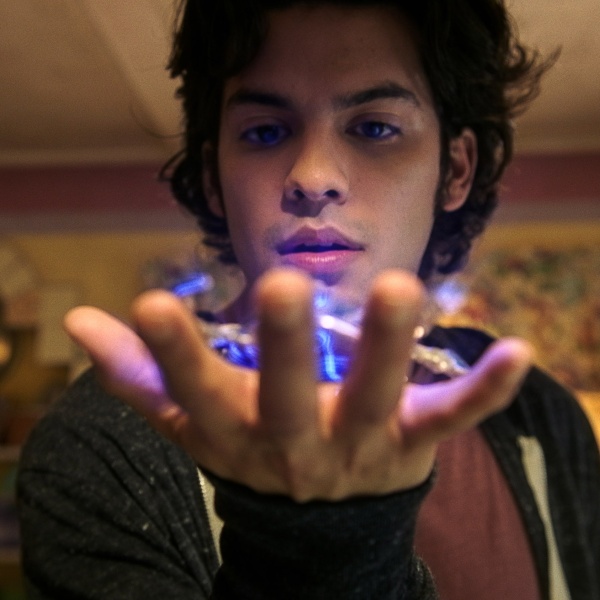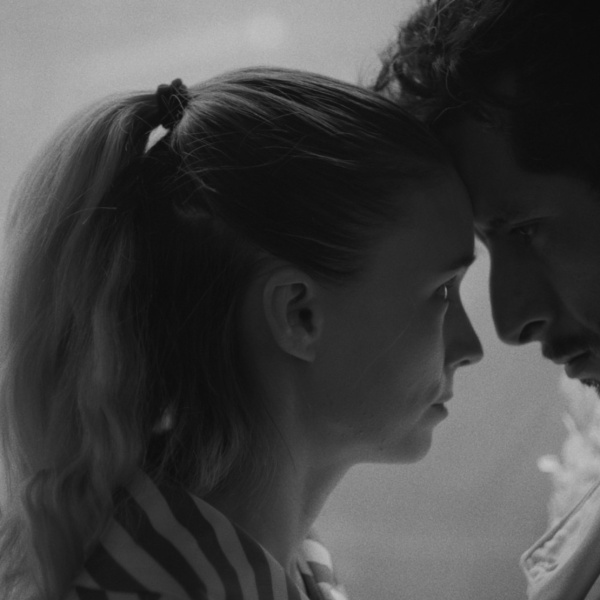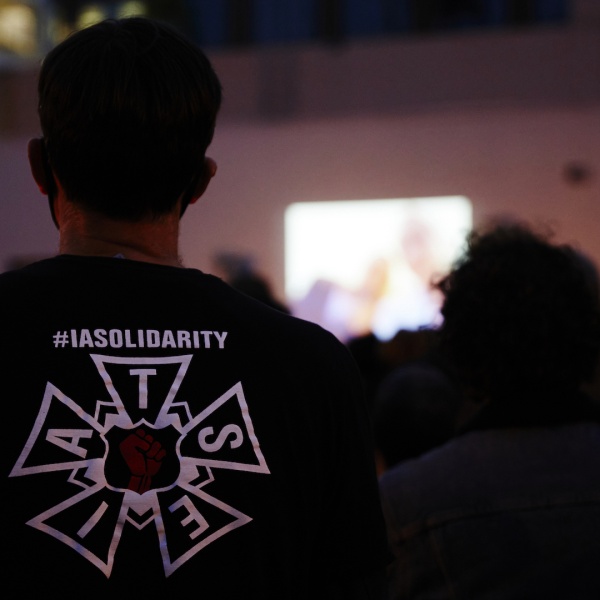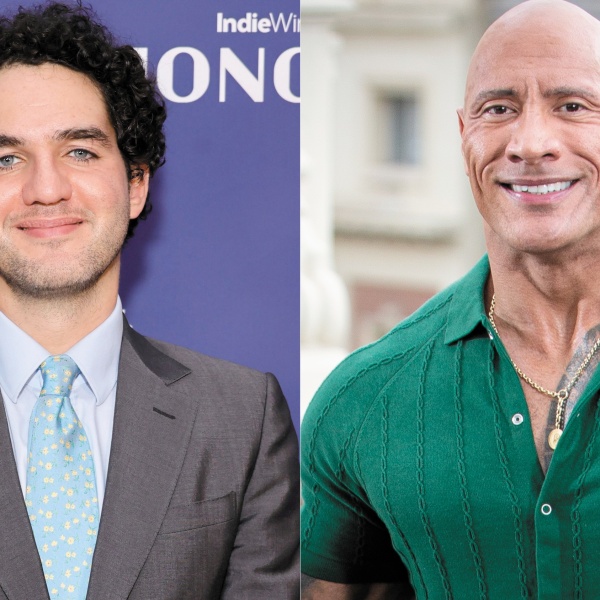[Editor’s note: The following interview was conducted before the SAG-AFTRA strike began on July 14, 2023.]
The following interview has been edited and condensed for clarity.
Juliette Binoche has made her career out of playing characters who are independent, searching, unsatisfied, restless. From playing Czech protest photographer Tereza in her breakout movie, the Philip Kaufman erotic classic “The Unbearable Lightness of Being,” to playing a composer’s wife left grieving and with his baggage in Krzysztof Kieślowski’s “Three Colors: Blue,” the Academy Award-winning French actress plays women pulling themselves through confusing situations, political intrigue, and perverse romantic entanglements. Often at once.
Her body of work eschews a pat introduction, but the Quad Cinema in New York has put together a syllabus of sorts with “Beautiful Binoche,” a series of films running from August 4-10 in the lead-up to next week’s release of her new film “Between Two Worlds” (August 11, Cohen Media Group), about a famous author who goes undercover as a cleaning lady to investigate the exploitation of the working class in Northern France.
The program features 35mm prints of Louis Malle’s psychosexual cult classic “Damage,” Michael Haneke’s “Caché,” and Abbas Kiarostami’s mind-bending Tuscan art rumination “Certified Copy,” which won Binoche her first and only Best Actress prize at Cannes. (She won her Oscar in 1997 for “The English Patient,” beating out Lauren Bacall and even effusively, charmingly apologizing onstage for doing so.) Also screening are “Blue,” “The Unbearable Lightness of Being,” Claire Denis’ “Let the Sunshine In,” and Olivier Assayas’ “Clouds of Sils Maria.” You can’t go wrong with any of these picks.
In a recent interview with IndieWire over the phone from Greece, where she’s currently filming the Odysseus tale “The Return” with Ralph Fiennes, we unpacked a few of them.
IndieWire: How do you feel about the idea of a retrospective of your work?
Honored. Honored is a weird word because what does it mean, being honored? It just feels that I am older and it feels choices I’ve made are being recognized, and so it feels warm to my heart. I really visited different worlds. That was my ambition in a way, to be related to different kinds of spirits and minds and visionary worlds. That’s why I could work with [“Flight of the Red Balloon” director] Hou Hsiao-Hsien, who’s from Taiwan or [“The Truth” director Hirokazu] Kore-eda who’s Japanese. I’ve been working in different worlds, and that’s really what I wanted, to open my mind, to be wider in a way. How do you adapt to different worlds and minds? That was one of my wishes.
Did you set out to work with visionary filmmakers or do you find they come to you?
I did… [but] you adapt yourself to the possibilities you have. But I have been cautious about not getting into the system, and that’s probably why I didn’t do that many films in Hollywood. I always liked being independent.

You had a small role in the 2014 “Godzilla” film playing a character who dies in less than five minutes of screen time. Why do you avoid Hollywood movies otherwise?
Because you’re getting an idea of what a woman is and being used in a certain way for commercial reasons, and very early on, when I was in my early 20s, I felt no, this is not what I’m interested in. It was a very intuitive way of living my life as an artist. I chose the characters and films I felt… there was something deep down somewhere independent, special. Even though in the ’80s, it was not easy to be an actress because a lot of directors wanted to use you in naked scenes and so you had to talk to the director, you had to find ways where it would make sense to you, but it was not always easy. I like daring, and meeting difficulties as well. It’s my personality. I like to feel courageous.
Did you have trepidation about doing nude scenes so early in your career with “The Unbearable Lightness of Being”?
The emotions you’re going through sometimes are more difficult than having to jump naked into a scene. You have to trust the director. You have to trust the DP. You have to trust the editor and the DP because they’re in it together. But some of the emotions you’re going through, you put yourself naked much more. Being naked isn’t as daring as wanting to tell the story, you need to tell the story of that character, and also you have to give yourself as actors, that’s part of the challenge, that’s the deal. You have to give yourself. If you’re not ready to give yourself, change jobs. Do something else. Some emotions I’ve felt totally naked. It’s not only one way.
Speaking of feeling emotionally naked, Claire Denis’ “Both Sides of the Blade” has to be one of your rawest performancesas a woman who becomes engulfed by the return of an old flame.You said you were really stressed out during the filming.
It was a time when I was losing my father. I was going back and forth between Paris and the north of France where we were shooting. I couldn’t sleep at night. I got sick during the shooting. I couldn’t sleep at night. I felt so vulnerable and I just accepted being shot like that, being vulnerable, and that was part of the challenge of doing the film. That was it.

One of the films in this retrospective is Michael Haneke’s “Caché,” where you play one half of a bourgeois French couple whose husband is tormented by guilt over his treatment of an adopted Algerian boy in his childhood. What do you remember most vividly about making that movie?
For me, “Caché” is related to another film I made with Haneke, which is “Code Unknown,” and it may be less known. Michael told me it’s one of his favorite films he’s made because it’s related to how citizens can betray [each other] in the small things. For me, when I think of “Caché,” I always think of “Code Unknown” because we started our working relationship there. I enjoyed working with him very much because I could see that he could see every single thought or feeling or intention I was having while shooting.

On “Caché,” it was interesting, because at the beginning of the shooting, I felt like he didn’t see me. He didn’t tell me anything for the first three weeks. I got almost upset, not totally because I knew him, but almost because I thought, “He doesn’t give a shit about what I’m doing.” So I said that to him, I said, did you see? Do you have nothing to tell me? I feel like I’m being left on the side. He said, “Really? Really?” And then he started really telling me every single thing, what I should be doing and not doing, and then it became a nightmare. So I thought, “I shouldn’t have said anything.” For me, “Caché” is that.
He has not released a movie in six years.Does his perfectionism have something to do with that?
Michael is very precise in what he wants. I’ve seen him being happy to be surprised and enjoying being surprised by the actors. But he’s a control freak. That you have to know. He knows what he doesn’t want and what he doesn’t like, and it helps the actors a lot, because we feel like we’re being taken care of and that we are going into a road of intelligence, a road of truth, because he’s really looking for truth.
“Beautiful Binoche” runs at the Quad CinemaAugust 4-10 in Manhattan. “Between Two Worlds” opens August 11.




